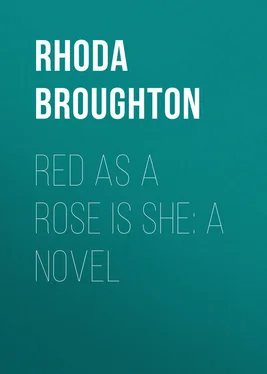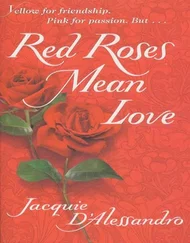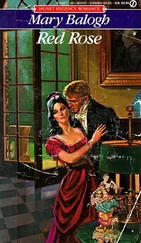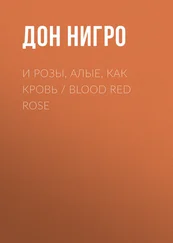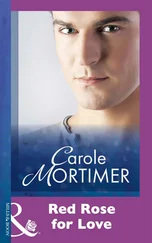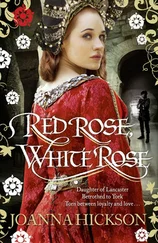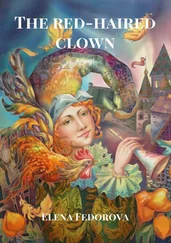Rhoda Broughton - Red as a Rose is She - A Novel
Здесь есть возможность читать онлайн «Rhoda Broughton - Red as a Rose is She - A Novel» — ознакомительный отрывок электронной книги совершенно бесплатно, а после прочтения отрывка купить полную версию. В некоторых случаях можно слушать аудио, скачать через торрент в формате fb2 и присутствует краткое содержание. Жанр: foreign_antique, foreign_prose, на английском языке. Описание произведения, (предисловие) а так же отзывы посетителей доступны на портале библиотеки ЛибКат.
- Название:Red as a Rose is She: A Novel
- Автор:
- Жанр:
- Год:неизвестен
- ISBN:нет данных
- Рейтинг книги:3 / 5. Голосов: 1
-
Избранное:Добавить в избранное
- Отзывы:
-
Ваша оценка:
- 60
- 1
- 2
- 3
- 4
- 5
Red as a Rose is She: A Novel: краткое содержание, описание и аннотация
Предлагаем к чтению аннотацию, описание, краткое содержание или предисловие (зависит от того, что написал сам автор книги «Red as a Rose is She: A Novel»). Если вы не нашли необходимую информацию о книге — напишите в комментариях, мы постараемся отыскать её.
Red as a Rose is She: A Novel — читать онлайн ознакомительный отрывок
Ниже представлен текст книги, разбитый по страницам. Система сохранения места последней прочитанной страницы, позволяет с удобством читать онлайн бесплатно книгу «Red as a Rose is She: A Novel», без необходимости каждый раз заново искать на чём Вы остановились. Поставьте закладку, и сможете в любой момент перейти на страницу, на которой закончили чтение.
Интервал:
Закладка:
"I have not cut out his tongue or tied it up in a bag, if that is what you are hinting at," says Esther, with a smile as confused as a dog's, when, not quite sure of his reception, he sneaks up to you sideways, lifting his upper lip, and from tail to muzzle one nervous wriggle. "Perhaps he is like the birds, and gets silent towards the end of the summer."
"Why you keep him dangling after you, like the tail of a kite, I cannot conceive," Mr. Craven cries, crumbling his bread with a little irritation. "It must be such a nuisance having a great long thing like him knocking about under your feet morning, noon, and night."
Esther is silent; only her head droops lower, lower, till her little nose almost immerses itself in her stirabout.
"Whereas," pursues Jack, helping himself to a great deal of cold beef, "if you were to give him his congé now (Jack is by no means neglectful of the g in the French word), he would be all right again in a fortnight, ready for the shooting."
"He would, would he?" says Esther, lifting up her nose and reddening with vexation.
No woman likes to think of her empire as anything short of eternal.
"If you don't like to do it yourself, I'll do it for you," pursues her brother, making a magnanimously handsome offer. "I would say to him, 'My dear fellow, it is no good, she does not seem to care about you,' as soon as look at him."
"What a delicate way of breaking the news!" cries Esther, ironically. "Commend me to a man for gentle finesse ."
"I don't believe in breaking news," replies Jack, sturdily. "If you were to go off in a fit, or the bay colt was to break his leg, or anything to go wrong, I'd far sooner people would tell me so without any humming and hawing and keeping me on the tenter hooks. Breaking news is like half cutting your throat before you are hanged, making you die two deaths instead of one."
"But suppose I do seem to care a little about him?" suggests Esther, blushing furiously, but holding up her head bravely, and looking straight at her brother.
"Suppose the cow jumped over the moon," replies Jack with incredulity.
"I don't know whether the cow has accomplished her feat, but I have accomplished mine," says Esther, trying to make her face as brass, and failing signally.
Jack puts up his hand, and strokes the future birthplace of his moustache, to hide an unavoidable smile.
"I don't wish to be rude," he says; "but may I ask, since when? Was it a week ago, or less, that you requested me to accompany you on one of your joint excursions to that everlasting wood, and told me you thought your watch wanted cleaning, the time seemed to go so slow?"
"A week!" cries his sister, indignantly. "Three weeks, or a month, at least."
"Wrong, Essie, wrong; it was this day fortnight, Ryvel Horse Fair, which was the reason why I had to decline your invitation."
"What does a week one way or another signify?" she cries, becoming irrational, as a worsted woman mostly does.
"Nothing to a woman or a – weathercock."
This last insult is too much for Miss Craven.
"I see you are determined to turn me into ridicule; I see you don't believe me!" she cries, preparing to rush from the room like a tornado.
"My good Essie," says Jack, jumping up, taking her two hands, and manfully repressing his inclination to laugh – "here I am; tell me anything , and I'll swear by the tomb of my grandmother to believe it."
"Why should not I like him? What is there in him so hateful as to make my being fond of him incredible?" asks Essie, unreasonable and sobbing.
"Nothing that I know of – except his boots , and you told me they were – "
"So they are," she says, smiling through her tears – "more than hateful; they haunt one like a bad dream."
"He is not the least penitent about them, I can tell you: only yesterday he showed them me with ungodly glee, told me he had got them at Hugh Hughes's, at Naullan, and advised me to go and do likewise."
"But – but – his boots are not he; he is not his boots, I mean," remarks Miss Craven, with meek suggestion; "mercifully, they are separable."
"He was not born in them, you mean? I did not suppose he was; he would have been worse than Richard the Third, who made his appearance with all his teeth in his head – didn't he? – if he had."
"It is quite true – perfectly true," continues Esther, leaning her two hands on the back of a chair, and tilting it up and down, "what you say about his being so stupid; he is extremely stupid: often I feel inclined to box his ears, for the thing he says, and for not understanding things, and having to have them explained to him; but after all, do you know, I am not sure that it is the people who say clever things, and snap one up all in a minute, that are the best to live with."
"You contemplate living with him then, eh? Last time I was favoured with your plans, you were to be a vestal to the end of the chapter."
"A provision for old age: I cannot expect you to be satisfied with me always," she answers, with rather a sad smile. "And when I am superseded, a good worthy simpleton, with obsolete chivalrous ideas of Woman in the abstract — Woman with a big W – who will laugh at my worst jokes whether he sees them or not, and make none himself, is better than nothing."
"All right," says Jack, calmly, walking towards the door, and unfolding the Times with a crackling that nearly drowns his voice: "please yourself and you'll please me: only be so good as to tell me when the wedding day is fixed, as I must get a new coat. I suppose that the one I had for Uncle John's funeral will not do, will it?"
Who is it says in the "Tempest," if neither Ferdinand nor any other beautiful young Prince had come on the scene, yet if Miranda had remained alone with her father, and the storms and winds and water-spirits, she would have ended by loving Caliban? I do not know about Miranda, but I am sure that if Esther had been in Miranda's place she would have so ended; would have carried faggots in her slender arms for the shaggy monster – have called him caressing diminutives, and asked him little interested questions about his dam Sycorax.
The desire to be loved is strong enough in us all; in this girl it amounted to madness: it is the key to all the foolish, wicked, senseless things you will find her doing through this history's short course. If she could have had her will, every man, woman, and child, every cow and calf and dog and cat that met her, would have watched her coming with joy and her going with grief. Add to which, in the summer time most women like to have a lover; it is almost as necessary to them as warm clothes at Christmas. In winter the fire is lover enough for any one. The frosty splendour of the stars and the chill flashing of the northern lights provoke no yearning in any one human soul towards any other; we peep at them through our icy casements, then drop the curtain shivering, and leave them alone to their high cold play in the sky. But who can look at a July moon alone?
You will say that Esther was not alone, that she had her brother to look at it with her; but who will deny that a brother who makes agricultural remarks about the Queen of Night, and observes that the haze round her royal head looks well for the turnips, is worse, immeasurably worse than nobody? To me it seems that there is nothing absolute, positive in all this shifting, kaleidoscope world; everything is comparative. There is nothing either good, bad, pretty, ugly, large, small, except as compared with something better, worse, prettier, uglier, larger, smaller. Measure two men together, and you find one tall and the other short; put the short one by himself or among a world of pigmies, and straightway he grows tall. Lacking a standard to go by, we make egregious errors. I have known many a woman to pass through life with a pigmy beside her, taking him for a giant all the while, nor undeceived to the end. Esther has no man to measure her Robert by; none at all, save the cowman, the carter, and the groom. Intellectually, morally, physically, he outtops them in stature, and that is all she can as yet know about him. Moonlight, propinquity, total absence of objects of comparison – these three must be Esther's excuses.
Читать дальшеИнтервал:
Закладка:
Похожие книги на «Red as a Rose is She: A Novel»
Представляем Вашему вниманию похожие книги на «Red as a Rose is She: A Novel» списком для выбора. Мы отобрали схожую по названию и смыслу литературу в надежде предоставить читателям больше вариантов отыскать новые, интересные, ещё непрочитанные произведения.
Обсуждение, отзывы о книге «Red as a Rose is She: A Novel» и просто собственные мнения читателей. Оставьте ваши комментарии, напишите, что Вы думаете о произведении, его смысле или главных героях. Укажите что конкретно понравилось, а что нет, и почему Вы так считаете.
